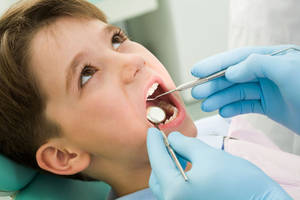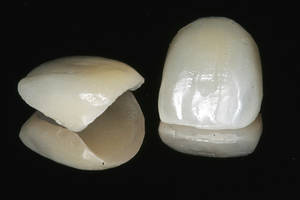Dental implants are the only way to replace an entire missing tooth, with all of its parts, including the tooth root. This is important because only if the entire tooth is replaced can the condition of tooth loss be stopped otherwise, if there is no tooth root, the alveolus starts to disintegrate, leading to a loosening of the rest of your teeth as well. But dental implants are not altogether free from negative side effects either. Just recently, an unfavourable aspect has been uncovered, and it’s called peri-implantitis.

What is peri-implantitis?
The dental implants is made of a special titanium alloy that allows the bones of the jaw to grow around and through the dental implant, providing maximum stability, and the idea is that it functions as more or less part of the jawbone. But there are tiny micro-movements that the dental implant does undergo, and these can lead to a widening gap in the bone material, essentially leading to the ruination of the bone material and the tissues around the dental implant.
Is it inevitable?
Right now the scientific community is divided on whether or not this is a necessary byproduct of having dental implants. On one hand, those who are in the camp of this being an inevitable byproduct say that since titanium is harder than bone or soft tissues, they will inevitably start to mess up the tissues around them from loading and the natural pressure of chewing and biting. On the other hand, detractors from this notion say that dental implants haven’t been around long enough to tell if this is for sure the case, and that if the dental implant is properly placed, the pressure of use should be distributed along the jawbone, and should not cause micro-movements.
Good news
The truth is, even if dental implants do cause inevitable peri-implantitis (which they do not necessarily do), they are still currently the best solution to the problem of tooth loss, as they are the only solution to the problem of tooth loss. No other dental reconstruction stops this process, so it is good even if. Aside from this, most dental implant users who do encounter peri-implantitis encounter it some 15-20 years after the initial placement. This gives you an extra 15 to 20 years before there is a problem with that tooth again. With all of these considerations, I think it is obvious that dental implants are still a medically completely feasible and safe option.
Special dental offer for those who decide to travel!
The offer is valid until 31st of December, 2019.





